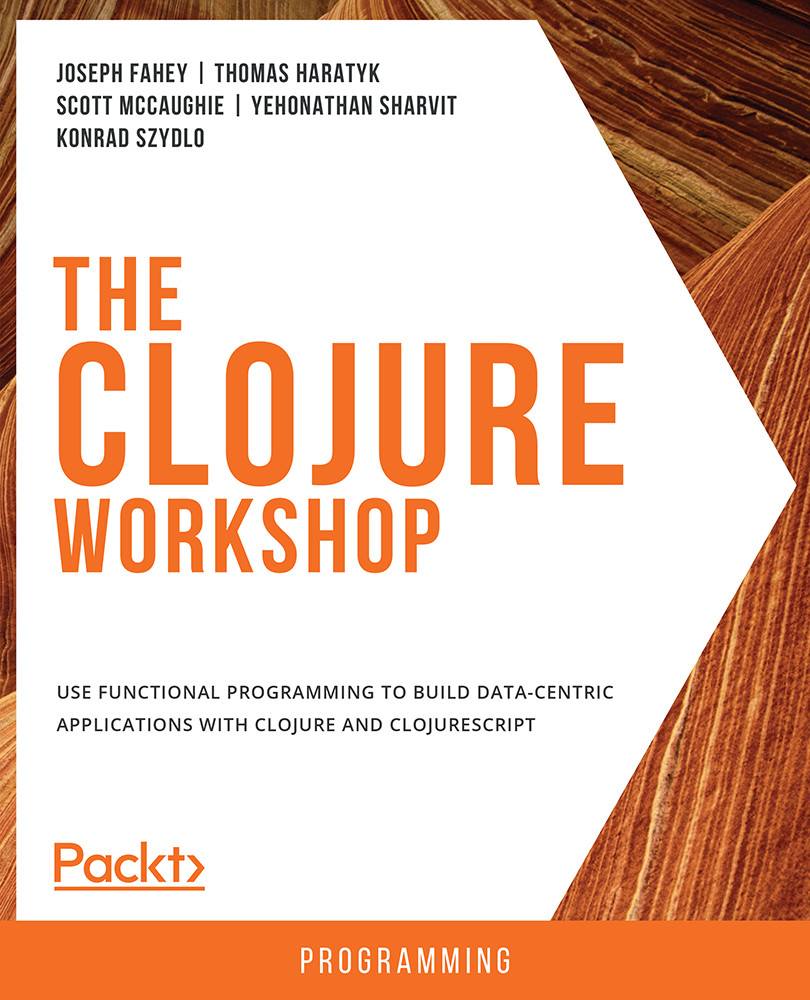-
Book Overview & Buying

-
Table Of Contents

The Clojure Workshop
By :

The Clojure Workshop
By:
Overview of this book
 Free Chapter
Free Chapter
 Sign In
Start Free Trial
Sign In
Start Free Trial


 Free Chapter
Free Chapter
In this chapter, we took a closer look at Clojure's powerful functions. We learned how to simplify our functions with destructuring techniques, and then discovered the great benefits of higher-order functions: modularity, simplicity, and composability. We also introduced an advanced concept to write code that is more extensible with Clojure's polymorphism mechanism: multimethods. Now that you are familiar with the REPL, data types, and functions, you can move on to learning about tools and functional techniques to manipulate collections.
In the next chapter, we will explore sequential collections in Clojure and take a look at two of the most useful patterns: mapping and filtering.
